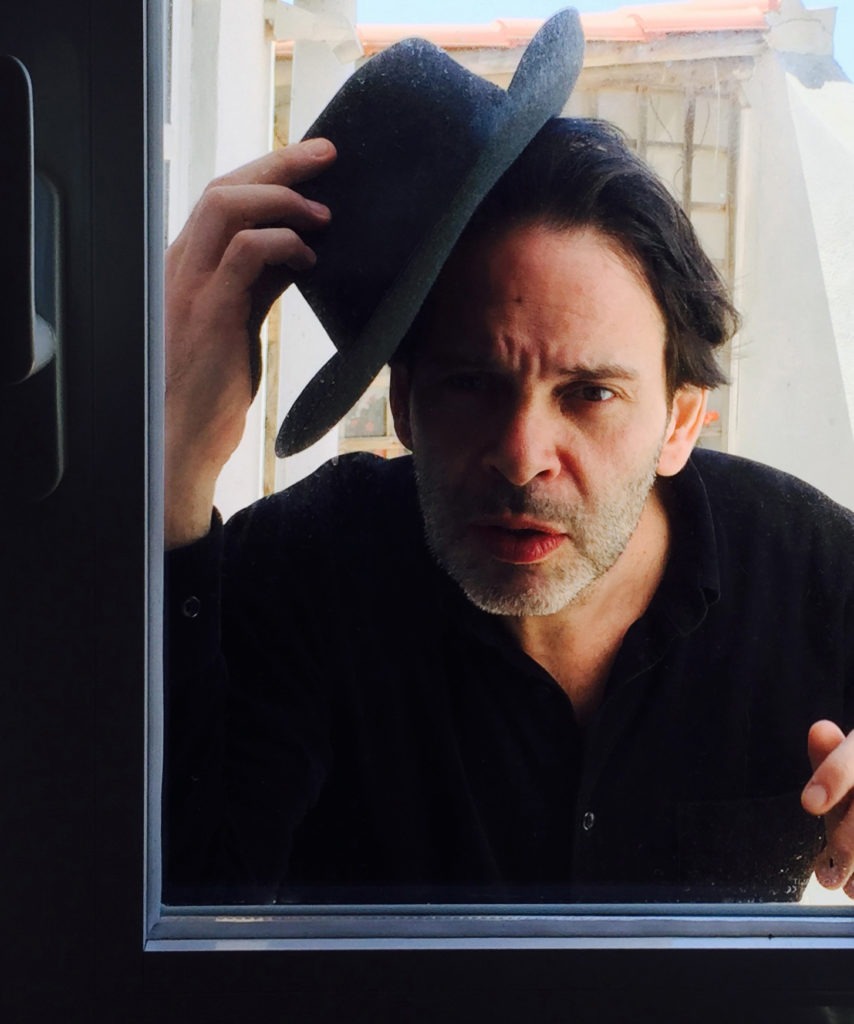Taipa Village Cultural Association exclusively showcases an illustration and drawing exhibition entitled “Who heeds a man who sits and wails out in the cold?” presented by Macau-based Portuguese artist Rui Rasquinho.
The selected works for this exhibition are based on a series of illustrations published in Hoje Macau newspaper (a local Portuguese language newspaper) during a seven-year span, from 2012 to 2019. The story behind the scenes is that Rasquinho embarked on a long-term graphic commitment based on a weekly assignment, which was to illustrate translated scholarly texts (poems, philosophies, critical essays, etc.) from several controversial Chinese literati, such as Li He (790-816 AD), Wang Chong (27-100 AD), Huainanzi (139 BC) and Wen Tzu (742 AD). The title of this exhibition hails from the stanza of a poem entitled “Let Wine Be Brought In!” written by Li He. The illustrations and drawings reflect Rui’s artistic skills, in which he found realisation in pure abstraction registered in Chinese Orihon style watercolour book (originating from the Tang dynasty, 618-908 AD).
About Rui Rasquinho

Rui Rasquinho is an illustrator and visual artist based in Macau and Lisbon. He studied painting at the Fine Arts Faculty, University of Porto and Animation Cinema at the Calouste Gulbenkian Foundation in Lisbon. He regularly publishes illustration work in magazines, newspapers and books. He also exhibits and works with drawing, painting and video.
Curator’s Statement
The path to knowledge through the art of illustration should indeed be the subtitle of this exhibition.
The selected works for this exhibition are based on a series of illustrations published in Hoje Macau newspaper (a local Portuguese language newspaper) during a seven-year span, from 2012 to 2019. The story behind the scenes is that Rasquinho embarked on a long-term graphic commitment based on a weekly assignment, which was to illustrate translated scholarly texts (poems, philosophies, critical essays, etc.) from several controversial Chinese literati, such as Li He (790-816 AD), Wang Chong (27-100 AD), Huainanzi (139 BC) and Wen Tzu (742 AD), just to name a few. In fact, the title of this exhibition hails from the stanza of a poem entitled “Let Wine Be Brought In!” written by Li He:
“Let Wine Be Brought In!”
My wandering soul has strayed away
Long past recall,
Yet a single cock-crow
The sky will turn white.
A young man’s heart should strive to reach
The very clouds,
Who heeds a man who sits and wails
Out in the cold?
As a result of this continuous exercise, it can be inferred that Rasquinho studied hard, distilling the essence of these Chinese scholars and, inadvertently, developed a refined approach to the traditional style of Chinese ink through the art of illustration. In recent years, his artistic skills found realisation in pure abstraction registered in Chinese Orihon style watercolour books (originating from the Tang dynasty, 618-908 AD). As intended by the artist, these accordion-like or foldable books are meant to be read, interpreted by an individual mind with utmost concentration, and not be opened permanently and exposed like habitual artworks.
João Ó
Taipa Village Art Space, Rua dos Clerigos No 10
12 pm - 8 pm
(Mon - Sun)


